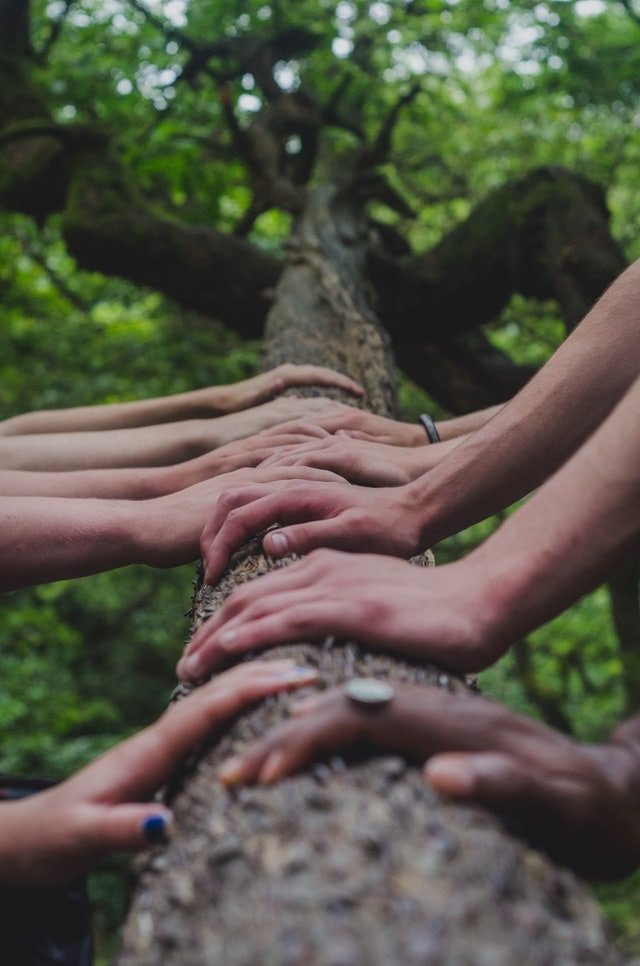Pause for thought: Shared resource

When Rachel Havrelock agreed to have a chat about studying the Bible, militarisation, and environmental impact, I wasn’t entirely sure what to expect. Rachel had written a book on the interpretation of Joshua, the military conflict been Israel and Palestine, and what is often called ‘hydrosocial’ community. The last of these phrases was new to me, but I gathered from what she said that communities have, for as far back as they can be traced, gathered around a shared water source. They are hydro, and they are social. Water was, and in many places still is, a meeting point at which life is shared. It may be the village water pump, the hillside spring, the local reservoir, the stream, river, or village lake.
Rachel then outlined for me how this hydrosocial feature in our lives has often been used to do the opposite. Rivers, streams, and lakes can function geopolitically as lines by which we distinguish our sense of self from that of another. And what an inversion it is. What was once a shared river, for example, between people groups, is now a demarcation that can (and often does) serves a weaponised rhetoric of geopolitical struggle.
In some instances, the resources themselves are consequently diminished. In the case of Israel and Palestine, we might think of the Coastal Aquifer, which as a result of Israeli strikes on sewage and water infrastructure, offers water that is 97% unfit for human consumption (WHO, 2018). This militarised handling of water not only leverages the resource to pronounce upon political difference, but by so doing severely diminishes the resource itself.
Jesus offers this invitation to us, ‘Let anyone who is thirsty come to me and drink’ (Jn 7.37). And elsewhere, ‘Whoever drinks the water I give will never thirst again’ (Jn 4.14). With Jesus as our living water, the church is a hydrosocial community. We gather around this life-giving source of what we need most. It is a meeting place, a place to be refreshed, to hear stories, to share life, to laugh, and to have fun.
But of course even this most precious of spiritual resources can suffer the inversion of its purpose, a sort of geopolitical use of Jesus, the living water. Of course this source of life can be used not as a meeting place, but as an opportunity to distance and self-identify as ‘other’ than those who would otherwise share this source of life. And though nothing of God is diminished as a result (God is not quite the same as the Costal Aquifer in this sense, and so the analogy does shows signs of cracking), nevertheless our ability enjoy the free gift of living water – as a free gift of living water – is hindered.
In the same way that natural resource – in this case, water – is both life-giving and life-taking, depending on how it is construed and used, so the essence of what we talk about day in and day out, God in Three Persons, is either construed or used as life-giving or life-taking.
And I think that is a serious point to consider. The lazy and outworn categories of ‘right’, ‘left’, ‘conservative’, and ‘liberal’ (to give only the headliners), should be relegated to a scrap heap somewhere. But they should be so handled, not because they are outdated, outmoded, or obsolete, but because they reflect a theological attempt to mimic the harmful pattern of politicisation over a shared resource. In this case, it is the living water offered by Jesus.
And we know that when that shared resource is viewed as a meeting place, a place to be refreshed, to hear stories, to share life, to laugh, and to have fun, walls come down and the resource itself is experienced more deeply than before for what it actually is: God’s gift of life to us. There is nothing to be lost, nothing obscured in one’s own vantage point, by sharing the life-giving resource of God in Jesus. But by so doing, there is – quite literally – everything to be gained.
Dr Charlie Shepherd